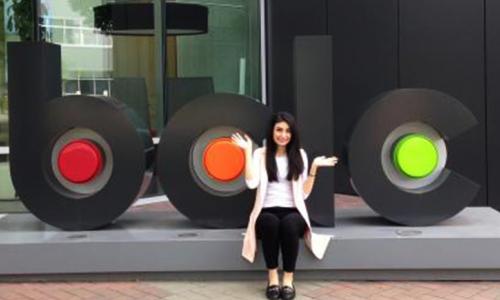
For a time, it's the easiest thing in the world.
After all, why wouldn't it make sense to talk to your stuffed animals? What's the problem with having invisible superpowers? If a person wants to spend a few hours being a dinosaur, who's going to stop them?
I'm convinced that imagination is an essential career skill. Just think how easy it is for young children to answer the question, "what do you want to be when you grow up?" Most kids won't hesitate to answer, even if their responses seem unrealistic, even impossible to our imaginatively-impaired minds. Not surprisingly, the answer to that question becomes much more evasive as the natural ease and strength of our imagination fades.
I can't help but frame the issue metaphorically. Kids are natural imagination farmers. Their minds seem to contain perfect fields of fertile soil for imagination to grow in, with just enough sunshine and rain around to make sure it does so healthily and prodigiously. Harvests are abundant and effortless, each plant bearing a near limitless yield. There are giants, and dragons, and robots, and aliens, and unicorns (and if we're lucky, a giant robot dragon-unicorn from space) doing all the hard work of planting and harvesting, with permanent smiles on their faces, and jingly sing-song music echoing endlessly through the farm.
In other words, as Flight of The Conchords would say, conditions are perfect.
So what happens as we age? Where do the giants, and dragons, and robots, and aliens, and unicorns go?
Somewhere along the way, in a place just beneath our awareness, we start having thoughts that go something like this: maybe instead of spending so much time out in this field, I should focus on building a place to live in. Once you've built your little subconscious shack beside the field, you might think: great - now I need to make some money so I can make this shack into a small house. And once you've got your small psychic house, you might think: I'd like to have more people in my house - it should be bigger! And what's with that ugly field out there? I should put up a fence around it.
With good reason, logic becomes an important and regular part of our lives as we grow older. Our ability to do what is logical - reasonable, practical, and/or realistic - is roughly correlated with our overall maturity and independence. How else could someone sustain the self-motivation required to graduate school, attain a fulfilling job, and live independently if not by making sound decisions based on the cold, hard facts of their life?
Unfortunately, it's very difficult to be logical and imaginative at the same time. As we become more proficient at embracing practicality and facing the often sobering realities of daily life, it's as if we forget how to imagine in the same way we once could. Logic wins.
But maybe it's not a total loss. Maybe there are ways to reacquaint ourselves with our innate imaginative intelligence.
The field is still there, the crops still growing - if maybe a little slower than before. Our natural ability to imagine hasn't gone away - it's innate. No one had to teach us how to imagine - we were "experts" at it from the moment we came into the world, and that knowledge - if we can call it that, for lack of a better word - should still be stored somewhere.
The problem is not that we've lost our imagination. The problem is that a whole bunch of other things have gotten in the way. Our psychological worlds have become more crowded, more complicated, more distracting. Where imagination was once only one or two mental steps away, it now requires a more complex route to access.
Knowing this, the answer to the question, "how do we become more imaginative, as we once were?" becomes obvious: we don't. It was never about having more of anything. The solution is to have less of that other stuff that's getting in the way of our imagination (sounds familiar, doesn't it?).
So, you want to more imaginative? What are some ways that you can clear your head? How do you create psychological space?
Meditation? Yoga, or other forms of exercise? Music, or other art forms? Maybe it's as simple as a dark room, a book, and a glass of wine.
The bottom line is to let go. Allow yourself to be impractical, unrealistic, and illogical. After all, at some point in your not too distant past, it was almost as automatic as breathing.
















